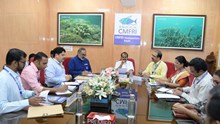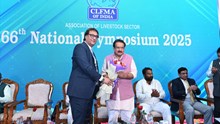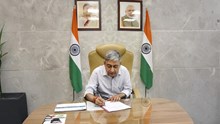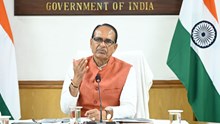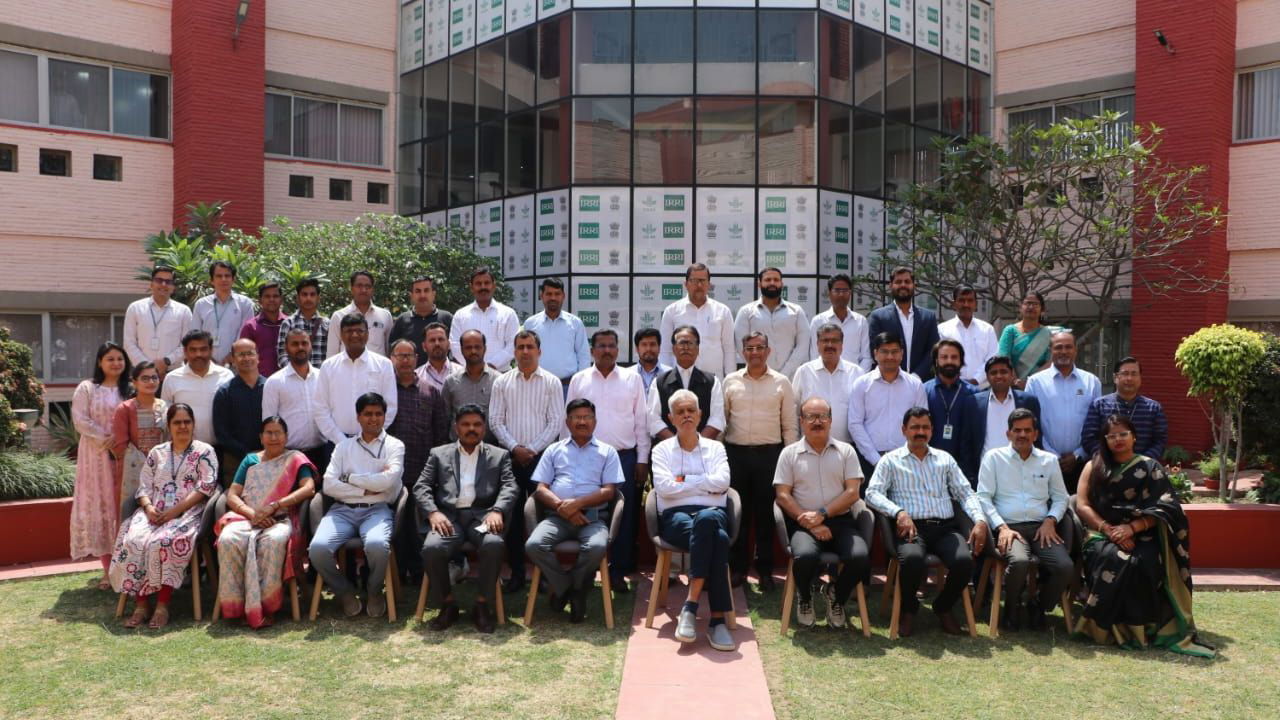
On March 28, 2025, The ISARC Farmers’ Café, featuring a Roundtable discussion on the Kalanamak Rice Value Chain held at the IRRI - ISARC, Varanasi, the event facilitated critical discussions on enhancing the Kalanamak rice value chain through policy interventions, scientific innovations, and market-driven approaches.
In this event, policymakers, agricultural experts, industry leaders, and farmers were successfully brought together to discuss the opportunities and challenges in scaling up the production, value addition, and commercialization of Kalanamak rice, one of India’s most historic and nutritionally rich rice varieties.
Dr. Sudhanshu Singh, Director at ISARC, in his inaugural address, remarked that Kalanamak rice is a symbol of cultural heritage, known for its aroma, nutrition, and spiritual significance as Buddha’s Mahaprasad. He highlighted the role of the UPAGREES project in promoting its cultivation through quality seeds, modern techniques, and better market access.
Dr. Mukesh Gautam, Consultant, World Bank, in his address, highlighted its nutritional richness, and distinct aroma, making it a healthy choice for consumers and need for quality assurance and consistency in order to strengthen its value chain and growth.
Dr. B. P. Singh, Consultant (Agri), World Bank, commended the upcoming UPAGREES project’s plan and underscored the need for collective action and research to enhance its quality, production, and global recognition.
Dr. Akhilesh Kumar Singh, Joint Director, Department of Agriculture, Varanasi, emphasized the scientific and technical aspects of Kalanamak rice production, underscoring the importance of quality seed selection, pest and disease management, and post-harvest processing to ensure consistency in grain quality and long-term sustainability of the variety.
The first technical session, led by Dr. Vikram Patil from ISARC, set the context by providing a comprehensive overview of the current state of Kalanamak rice production, existing value chain gaps, and potential opportunities for scaling up production. He highlighted key research insights, including best agronomic practices, genetic conservation strategies, and technological advancements in seed purification.
A significant highlight of the event was the Farmers’ Open Forum, where FPO representatives from different Kalanamak districts engaged in sharing their perspectives on challenges in production, branding, pricing mechanisms, and market accessibility. Farmers expressed concerns about low market penetration, lack of premium pricing for Kalanamak rice, and the need for government-backed promotional initiatives to enhance consumer awareness. Experts in the panel shared their insights on addressing these concerns by outlining strategies for collective marketing, cooperative branding, and integration into niche consumer markets.
The discussion featured expert contributions from representatives of NABARD, APEDA, the Indian Institute of Packaging, PQS Varanasi, IIT BHU, BHU, and a specialist in digital marketing, along with export agencies. Scientists from ISARC also shared their expertise on seed system improvements, climate resilience, and post-harvest processing innovations.
The second half of the event focused on quality assurance, certification processes, and value addition, providing actionable insights on how Kalanamak rice can be positioned as a premium brand in domestic and export markets.
Dr. Saurabh Badoni from ISARC spoke on ensuring premium quality and nutritional integrity in Kalanamak rice production, detailing the importance of scientifically managed post-harvest processes, modern milling techniques, and quality control standards. Dr. Hameeda Itagi from ISARC elaborated on value-addition strategies, demonstrating how diversified rice-based products such as rice flakes, rice flour, and ready-to-cook products can create new revenue streams for farmers.
Financial and export market perspectives were provided by Anuj Kumar from NABARD, who introduced financing opportunities for FPOs and farmer cooperatives, and Devanand Tripathi from APEDA, who explained export regulations, international certification norms, and strategies for integrating Kalanamak rice into global value chains. Dr. Babu Rao from the Indian Institute of Packaging presented innovative packaging solutions that enhance the shelf life and consumer appeal of specialty rice varieties, while Dr. Dharmendra K Singh from PQS Varanasi provided insights on quarantine and phytosanitary measures essential for export compliance.
The roundtable discussions reinforced the importance of farmer participation in branding and marketing initiatives, the integration of digital solutions for quality control and traceability, and the adoption of modern processing techniques to maintain the authenticity of Kalanamak rice. Experts and policymakers agreed that coordinated efforts between government bodies, research institutions, and private enterprises would be essential in scaling up production, ensuring certification, and positioning Kalanamak rice in high-value markets.
In closing, Dr. Sudhanshu Singh, Director, ISARC, emphasized the importance of sustained multi-stakeholder collaboration to ensure that Kalanamak rice reaches its full potential as a premium heritage grain. He reiterated ISARC’s commitment to facilitating research, capacity-building, and market linkages to strengthen the Kalanamak rice value chain.
The event concluded on a high note, with a shared vision of empowering farmers, enhancing market-driven production models, and securing a strong national and global footprint for Kalanamak rice.






